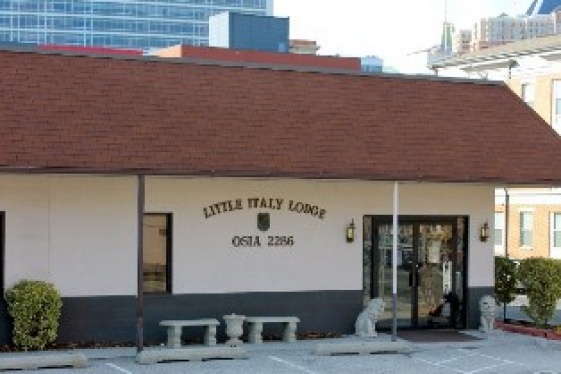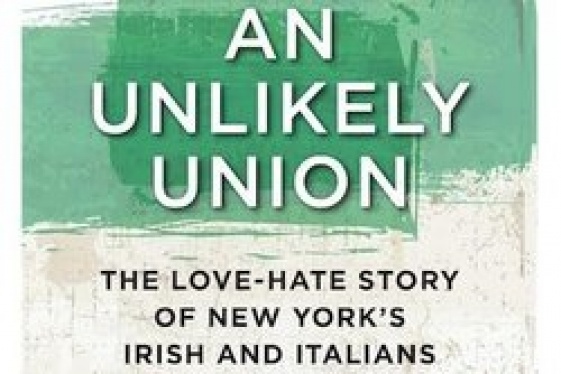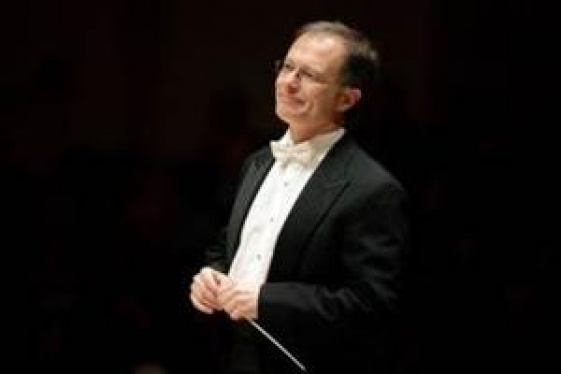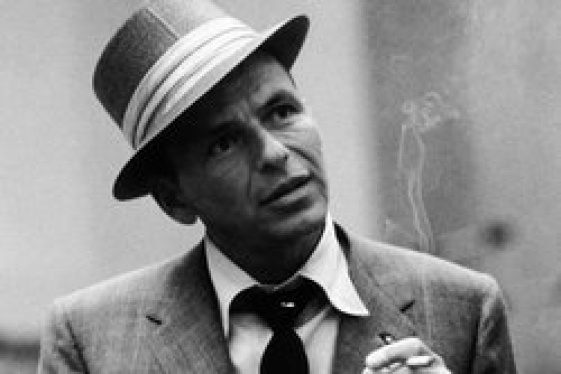
Ilaria Serra (Professor of Italian and Comparative Studies at Florida Atlantic University)
Da Venezia alla Florida, incontriamo la meravigliosa Ilaria Serra

Italy has wonderful representatives in the United States who tell its story, exalt its culture and language, narrate its traditions and innovations, its places and its beauties. To see them from Italy, where we are always ready to describe only our worst things, is exciting.
One of the most competent people I have met in this field is also a person I have the honor to call a friend. Ilaria Serra is Professor of Italian and Comparative Studies at Florida Atlantic University where she earned a Ph.D. in Comparative Studies. With her husband Emanuele Pettener, another great friend of mine and of We the Italians, they share a wonderful family, a great job representing Italy in America and the esteem, friendship and admiration of those who have known them over the years. It is a great pleasure for me to welcome Ilaria Serra to We the Italians.
Ilaria, first of all please tell our readers something about you, from Venice to Florida…
No, first of all let me tell you I am honored to be part of We the Italians! It is where I come across some of my best research ideas. You have a good nose, Umberto.
Yes, I graduated from the University of Venice, where I also worked as a journalist and a teacher of Italian for foreigners. After my graduate studies at UCLA and Purdue University, and after working in the Czech Republic, I landed in Boca Raton. I have been working at Florida Atlantic University for 22 years, a University that supports new ideas and research, not with large sums, as we are a public university but with some resources. Now my heart is divided. I go back to Italy every summer and I try keeping one foot in two shoes.
You organize so many activities at FAU, I couldn’t choose which ones are the most interesting… I leave it to you, please describe us a bit how you promote and teach Italy in Boca Raton
Yes, it’s too much to tell. Most of it is on our website. We organize events that are thought for students but are open to the community of Italians and the Italian Americans. Our classes incorporate research projects that link the community to the academic world.
For example, in addition to multiple movie nights during the semester, we created the Italian-American Film Festival, and we already ran two editions. Basil Russo, the President of the Sons and Daughters of Italy in America, was a special guest. His children, the Russo brothers filmmakers, fund the grant that produced many of the films we showed. Well, Russo said it was the first student run Italian American film festival in the nation!
We started the Italian American Oral History Archive, housed in the FAU Library, which collects interviews made by our graduate students to Italian Americans who live in Florida.
We also created and maintain the Itamm-Italian American Memories Documentary Archive, which is a database of marvelous documents. It contains hundreds of WWII letters and postcards from an Italian American family Badia-Johnson; the “Curbside History” of the Fruttauro-Vivo family letters (donated by the Calandra Institute in New York); the pictures of the Zoppè Family Circus who left Treviso to come to the US and work in the Ringling Circus; the paintings of the virtual exhibition by Tom DiSalvo (Domenica Diraviam’s dissertation in progress). To work on this website, our GKA chapter organizes a Research Day every semester, where undergraduate and graduate students and even community members, work hands-on on these primary sources.
The most recent GKA Research Day was dedicated to deciphering the manuscript of a 1812 opera, discovered in a Castle in Tuscany, that will be the dissertation topic of one of our PhD students, Barbara Salani.
This is part of a bigger project we are launching right now: a summer research camp on Music and Poetry in Castiglione del Terziere, this amazing little treasure of a castle on the hilltop of Lunigiana in Tuscany. We are accepting applications for this summer, June 2022. We will have singing Master classes with a FAU baritone Mitchell Hutchings, and pianist Barbara Salani, while Emanuele and I will lead a poetry camp on the poems by the late castle owner, Loris Jacopo Bononi. We will expand the concept of the “geometafora” that I recently proposed, and work on creative writing in Italian (Emanuele’s course “Italian Writing Workshop” is always a success at FAU).
The Italian Consulate in Miami often works alongside with Florida Atlantic University?
Yes, we appreciate that Italian Consul General in Miami, Cristiano Musillo, the Vice-Consul, Eva Alvino, and especially their director of education, Maria Rosa Borghi, are always supportive of us.
They help us organize concerts and shows. Last Fall, the Consul General and the ODLI facilitated the set up of a Medieval costume show brought from Narni, Umbria. The costumes were closely inspected and enjoyed by students and community members. And, during the show’s opening, we had a beautiful celebration for the 700 years of Dante’s death with a three-hours “Divine Comedy Reading Marathon” with all our students. One of them, who is a chef, made homemade chocolate inspired from the Perugina recipe.
Emanuele Pettener involves our students in creative writing projects and translations. They have already published on on-line journals, and they regularly contribute to the website we created with Valentina De Cesare in Milan, titled “Strade Dorate. Osservatorio di Cultura Italoamericana”.
I probably could go on… In general, our goal is to bring out the best in our students, even undergraduate. They have translated and created the subtitles for a movie, they have translated family histories, they have presented at Undergraduate Research Symposia.
In general, we try to create a positive synergy between university and territory. A small example: students gather in the Italian Club “Insieme” and GKA Italian Honor Society, but we do not only have open conversation hours on campus. We also meet off campus, and invite everyone to engage in conversation. We welcome the talent and the generosity of those who live around here.
You know where this synergy brought? Our students were able to convince the “nonne” of Boca Raton to cook for them! They invented the “Nonna Night” with the Bonanno Lodge of Order of Sons of Italy. It is one of our most successful activities. It joins food and stories from the local Italian nonni.
The best personal satisfaction maybe is when a student, Brittni, asked me to perform the ceremony in Italian and English for her wedding to a great Italian boy!
What is FlorItalians?
It is a series of Portraits of Italians who live in Florida, written by advanced undergraduate students. They interview them in Italian so they practice their language skills with native speakers. They are published on Facebook and on a webpage. It started in the class I regularly teach, titled “Leggere la Stampa.” The idea came to me from “Venetians,” a column that journalist Carlo Mion writes in Venice, and “Humans of New York.” I thought it would be a good way to connect the students with the Italy that is around them, and make them discover the richness Italians bring to Florida.
Recently you organized Italy in Transit, and it was a big success: what is it?
I am always surprised by this International Symposium! It started 6 years ago when Anthony Tamburri nudged me to start thinking about an academic meeting. It became a unique event, a colorful and variegated meeting of intellectuals, artists, academics, students at all levels, and community members. Every year I spread my nets and I so much talent and humanity remains caught in them. There is an unspoken rule: each speaker should remain for the entire symposium so that there is a real exchange of ideas. The students are the first to benefit in this connection, and beautiful friendships are born.
Last year, since we had to use Zoom, we stretched it to the maximum and we had the first Summit of Italians in Transit, with a Q&A across 24 time zones! From Brazil, New Zealand, Hawaii, South Africa, Iceland… and the Mission to Mars! It was incredible.
This year we presented a research on Tom Di Salvo, local painter and late friend of FAU Italian, in comparison with the beautiful stories painted by Ralph Fasanella. Ralph’s son, Marc, drove to Florida and we are now creating a new scholarship on his father’s work, funded by the sale of his books and posters.
There were many other incredible meetings, even Werner Herzog appeared after we watched his Italian documentary on Gesualdo. And we are especially proud of our students, like Austin Sanniota Edwards and Dr. Marianna DeTollis, who are now teachers of Italian in high schools and had their students present for us.
This year, the Symposium included the Michele D. Serra New Italian Cinema Film Series, which is dedicated to the memory of my father who was an expert in intercultural communication. The ninth lecture was given by filmmaker Andrea Bonfanti and producer Anna Godano, who presented their films, including L’Ultimo Pastore and The Man Without Gravity.
Another personal highlight in the last Symposium is when I showed the photos and story of the Zoppè Italian Family Circus (which by the way I discovered through We the Italians and I thanked you in the opening slide!). I could not believe it when the whole family came to the Symposium, and Tino Wallenda and Giovanni Zoppè performed! I don’t think I can make a more entertaining academic presentation than that…
You founded and co-lead the FAU Study Abroad Program in Venice…
Speak of keeping a foot in two shoes… I could not leave Venice and I had to share it with my students. My husband, Emanuele Pettener and I started this program 12 years ago. Students come to our city for 6 weeks, and they take two courses: Italian language and the culture course “Venice and Its Reflections,” but also Architecture or Geography. Most of all, they live in the city and they live the city: we visit all museums, but we also participate in all city events and we volunteer with local organizations. We cleaned the walls, we made masks with special need kids, we gather plastic from the lagoon, one student volunteered in St. Mark’s Choir and one in the Cat Shelter (she is now a veterinarian). Venice and foreigners have a conflicted relationship and our students want to leave a good mark.
Even regarding the topics you wrote about, in books and articles, there’s so many I wouldn’t want to leave something out, but it’s impossible not to. I am particularly curious about this one you published in 2011: “Teaching Italy Through Its Music. The Meaning of Music in Italian Cultural History”. Please tell me a bit more about this
I am still working on that topic… I designed a course that teaches students Italian history through songs. It is titled “Italy in Lyrics.” The idea at the base is that singing is the best way to hammer words into our memory, but if what we sing has historical or cultural meaning, then we learn so much more. Sharing a soundtrack is sharing a common ground, at a sensorial, deeper level and this facilitates a meeting of cultures. Music accompanies important moments of life: lullabies and war songs, celebrations and school rhymes, propaganda and protest, physical works and strike marches… I wanted students to learn what is contained in a song, besides the words. And to be transported in the Italian past.
And talking about music, you also recently published your new book: “Italia cantata: Storia d’Italia attraverso le canzoni da Napoleone a Berlusconi, 1797-1997” [Linus Learning]. It seems very interesting…
That is a textbook for advanced Italian students that combines the songs’ historical context, with listening activities and grammar exercises, and the study of original written and visual documents. It can be used in advanced and intermediate courses that do not have so much material available.
The course “Italy in Lyrics” instead is for English speakers, and I have a manuscript in English ready to be published on the topic. Fingers crossed…
It seems that music has a big importance in your curriculum…
Yes, we had the fortune to enroll Barbara Salani as a PhD student. She is a pianist and a composer, and is full of enthusiasm. With her help, we created an Italian Program Choir (informally!) where we involve students in several concerts. In 2019 we had “Italiano sul Palcoscenico” which brought more than 800 people to our auditorium and more than 120 students, elementary to college, on the stage.
During COVID we produced the “Libiamo” choir from Verdi’s Traviata to send an encouragement during our isolation.
In spring 2021 we were able to have a concert outside, and we dedicated it to Myriam Ruthenberg, the founder of the Italian Program, who retired. I think she was the only Professor at FAU who was greeted with an entire concert!
Last Fall, Barbara united all our students and those of other schools for the video of “Tanto gentile e tanto onesta pare,” Dante’s sonnet, that she put in music for the XXI Week of the Italian Language in the World.
You’ve been living in the US for quite a while now. Of course you come back every year, or at least you did before covid. What would you transplant from Italy to America, something you miss about Italy? And vice versa, what would you absolutely bring from America to Italy?
Yes, I have become the topic of my own research! Good part of my research is about Italian immigration to the United States. My books are about this topic… now I am an Italian American with a divided heart. But don’t make me choose one part over the other. I really hold on to both.
Besides my family and friends in Italy, some things I miss are the Venetian frittelle of Carnival, the smell of winter and calicantus, the sound of church bells from dawn to sunset, the Easter songs in my church. From the United States, I would bring back, the American tolerance and love for freedom, their optimism and openness, their easy laughter and … good customer service.
You may be interested
-
“The Hill” St. Louis’ Little Italy
When the fire hydrants begin to look like Italian flags with green, red and white stripes,...
-
2015 scholarship competition
The La Famiglia Scholarship committee is pleased to announce the financial aid competition...
-
An Unlikely Union: The love-hate story of Ne...
Award-winning author and Brooklynite Paul Moses is back with a historic yet dazzling sto...
-
Cathedral of St. John the Divine, Oratorio S...
For the first time ever, The Cathedral of St. John the Divine, in collaboration with the O...
-
Emanuele: cervello d'Italia al Mit di Boston
Si chiama Emanuele Ceccarelli lo studente del liceo Galvani di Bologna unico italiano amme...
-
Frank Sinatra 100th Anniversary Celebration
Hoboken’s favorite son, Frank Sinatra, continues to evoke images of the good life nearly 1...
-
Holiday Concert with Micheal Castaldo and Ma...
The Mattatuck Museum (144 West Main St. Waterbury, CT 06702) is pleased to celebrate...
-
In sordina, l’Italia ritorna in scena al Nat...
La presenza italiana a Natpe 2016, la principale fiera Tv per il mercato Latino Americano...



























